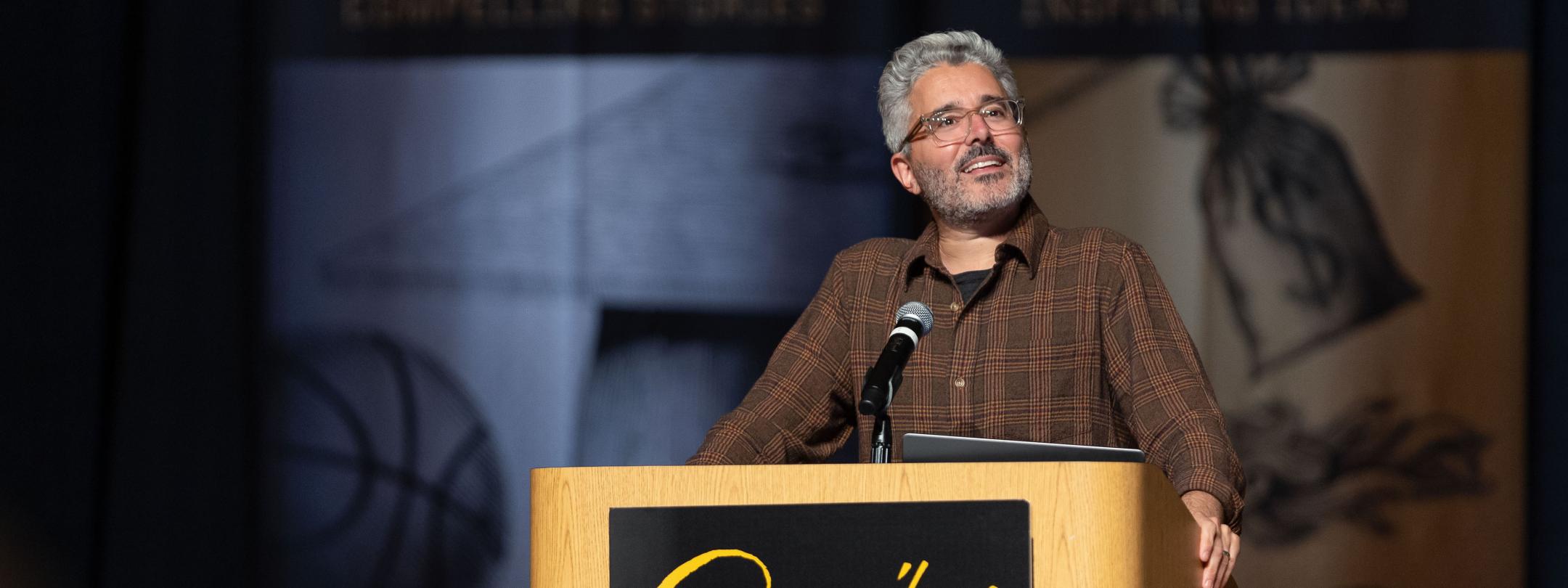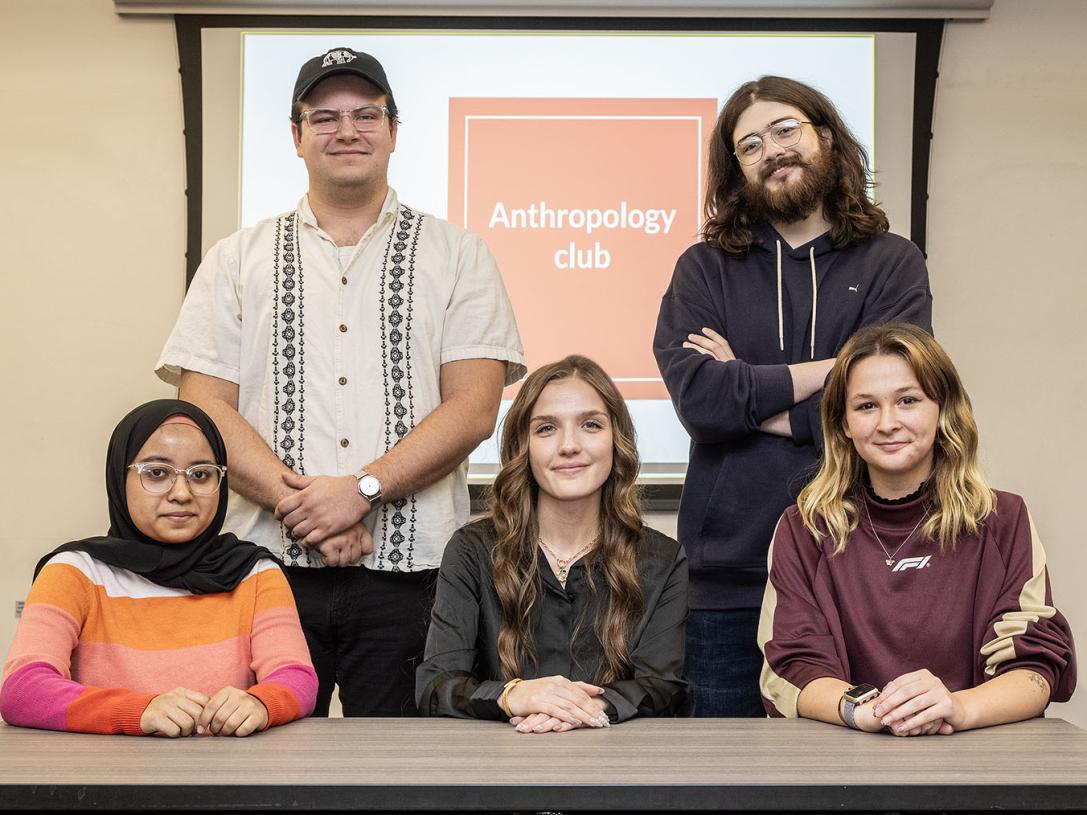
New Omnibus season at PFW opens with role reversal for New York Times journalist
By Blake Sebring
October 25, 2024
Less than two weeks before Election Day, New York Times journalist and podcaster Michael Barbaro held a different kind of town hall meeting Thursday while visiting Purdue University Fort Wayne. Instead of serving the usual role of a reporter asking the questions, Barbaro answered them during separate sessions with local media, students, and members of the general public.
To help kick off PFW’s 29th year of its Omnibus Speaker Series, students taking part in an afternoon experience were deliberate and pointed as they wanted an insider’s idea of how journalism works and how Barbaro thinks it should work. The students weren’t trying to make points with their comments, but expressed genuine curiosity and a desire to understand.
“I think it’s important to talk to journalists and ask questions,” said Nicole Bosserman, a senior majoring in anthropology. “There are a lot of questions about disinformation and misinformation and how they are trying to deal with that—and having a journalist tell you, `Yeah, we are thinking about that a lot, and here are our ideas on how to fix it.’ It’s such a big issue now, and it was nice to hear, not just `Oh, I read a news story about misinformation,’ but he was talking to us personally, so I feel that changes the impact.”
During that afternoon classroom session in the IDEASpace at Helmke Library, Bosserman asked Barbaro about the continuing trend where traditional media sites are putting up paywalls—as Barbaro’s podcast “The Daily” did recently for its archives—compared to partisan news sites which remain free. That creates an alternate reality, Bosserman said, and how can factual journalism survive?
“I think we all agree that if there is not enough journalism in the world, then democracy suffers. And one of the ways that we insure that there is enough great journalism in our democracy is by making sure there is a viable business model for journalism,” Barbaro said.
“I still think that the risk is that the highest-quality sources of news get diminished by a bad economic model, and then what you are left with are the less high-quality versions that will remain. I think that’s why we still need to ask people to subscribe to these services, and we have to make it really good.”
Several times the students’ questions caused Barbaro to pause and stroke his chin to consider his answer.
“I think the act of journalism itself requires so much demystification, like what is this thing we are doing and how do we make the decisions we make and what are the motivations?” Barbaro said.
Another questioner asked if Barbaro had any ideas to counter the public’s mistrust of the media.
“I’m obsessed with this subject,” Barbaro said. “I think it’s at the heart of why it’s important for me to come to college campuses, and it’s important to how we constructed “The Daily” as a show. It’s a gaping wound in our system, the fact that there’s such a low level of faith in a lot of our news media.”
Many of these themes carried over to Barbaro’s prime-time presentation at Auer Performance Hall a couple hours later.
Barbaro said he believes part of the solution is changing the way journalists approach their role in the production process, saying they need to be more open about how they gather and present information. He accomplishes this on the podcast by allowing his subjects to say their words directly to the audience. Barbaro said journalists need to be more humble, admit when making mistakes, and even explain how and why they were made.
He also pointed out there are powerful partisan platforms that thrive on casting doubt on traditional media, undercutting the normal journalism goal of objectivity. One major goal he has, Barbaro said, is to remember he is a conduit and advocate for his listeners, and he tries to present the news in a style that represents those choosing to participate by consuming the show. He’s not simply trying to elicit answers so he can project his own opinions, but allowing others to form their own.
There’s also an important way to approach stories in the fact-gathering phase.
“When I am forced outside my natural habitat to hear people and their views and hear them out and meet people where they are, I think that part of the work is sacred,” Barbaro said. “We are forced to go to a lot of places where people don’t go and hear people out. I think the best journalism is empathetic and curious and wants to know how you arrived at your ideas rather than if you have the right ideas.”
The Omnibus Speaker Series is underwritten by a generous contribution from the English-Bonter-Mitchell Foundation, which has sponsored every season since the series was introduced in 1995.
Journalist and writer Luke Russert will continue the 2024-25 season on Nov. 19.




